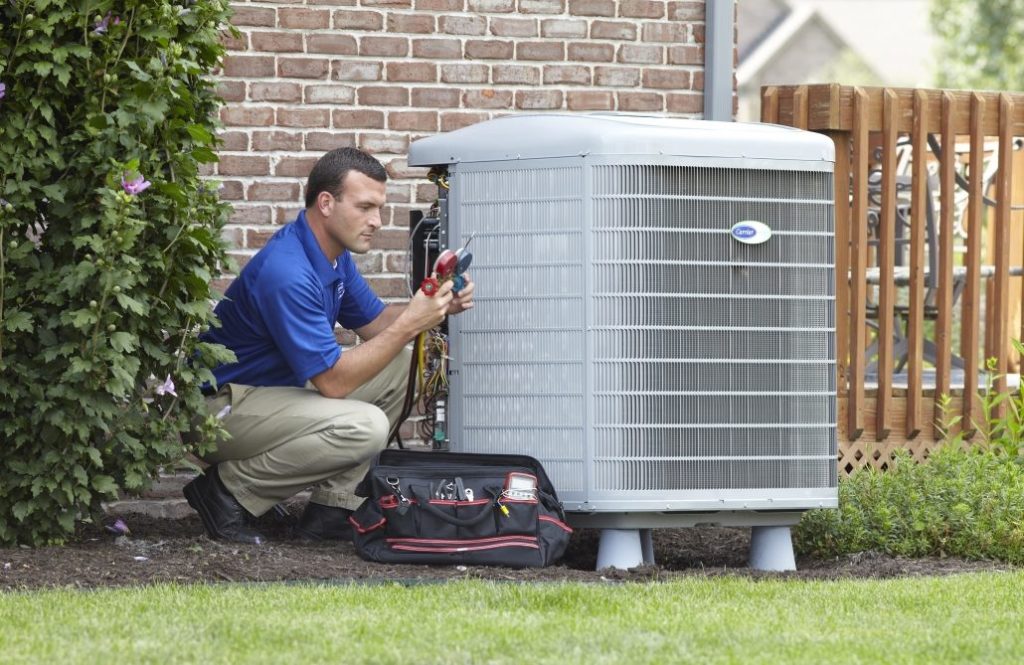Most Floridians don’t really understand how the air conditioning system in their home works – but we do know that we can’t live without it! There are a lot of moving parts to your HVAC unit, and all are essential to keep your home cool regardless of the outdoor heat. One such component is the A/C capacitor.

At Ocean Air, we partner with our clients to ensure that A/C maintenance and repair is not a mystery but that the homeowner understands the process. We make recommendations that are best for our clients’ long-term ownership and educate them on the reality of the unit’s function. With that partnership in mind, let’s look more closely at this vital aspect of the HVAC system – the capacitor.
The A/C Capacitor
People may think of capacitors in relation to computer circuitry, but the typical AC capacitor is much larger. A standard capacitor is approximately the size of a lantern battery.
A capacitor has the ability to store and provide significantly more energy than the average battery. Therefore, it is ideally designed to deliver short, powerful bursts of potent energy when required. When the AC system switches on, the capacitor is initiated in order to provide the energy needed to start the system properly. Once the system is running, it will not need the capacitor until it needs another jolt.
Why the Capacitor is Necessary
Every day we turn on any number of appliances, from the TV to the computer and the microwave oven. While flipping a switch to turn on the A/C unit may seem like the same process, there’s more behind the scenes concerning the HVAC. The standard air conditioner requires significant power during startup – often more than the home’s electrical grid can provide. Therefore, the capacitor is necessary to make the system function optimally.
If you’ve ever jumpstarted your car, you’ll understand the concept of an A/C capacitor. Although jumper cables provide extra power to the battery to start the vehicle, the capacitor delivers an extra shot of electrical energy when the HVAC needs it.
Your air conditioning unit may contain several capacitors, each associated with a high-energy component of the unit. For example, the A/C compressor will have a dedicated capacitor to start its motor, and the blower in the outdoor condenser cabinet may have an additional capacitor dedicated to its performance.
Some A/C systems have a “dual capacitor.” This component comprises two smaller capacitors connected in a more efficient space. Dual capacitors are typically found in mini-split systems and other models installed in locations with less space.
When AC Capacitors Need Maintenance
An A/C capacitor is likely to fail at some point due to factors such as high temperatures and high levels of voltage. Capacitors may also malfunction if they sustain damage via a lightning strike or power surge. You may be dealing with a failing or malfunctioning capacitor if you see any of these warning signs:
- The air conditioning system takes longer than usual to start up – or doesn’t start at all
- The system randomly turns off without reason or warning
- The AC unit is emitting humming noises
- An acrid smoke odor is emanating from the A/C unit
- Your power bill spikes suddenly or is significantly more expensive than normal
-
Some A/C service companies repair a unit no matter how inefficient it will continue to operate. Others will only want to sell you a new team, even if it is unnecessary. The technicians at Ocean Air are trained to make the best recommendation based on your unit’s size, age, and condition. We won’t try to scam you, trick you, or exploit you – call today to learn more about our company and mission. Not all A/C service companies are the same. At Ocean Air, we prove that to our clients every day.

